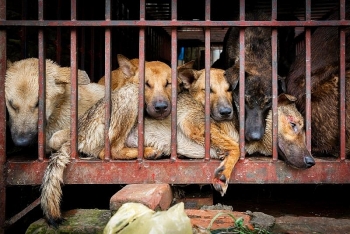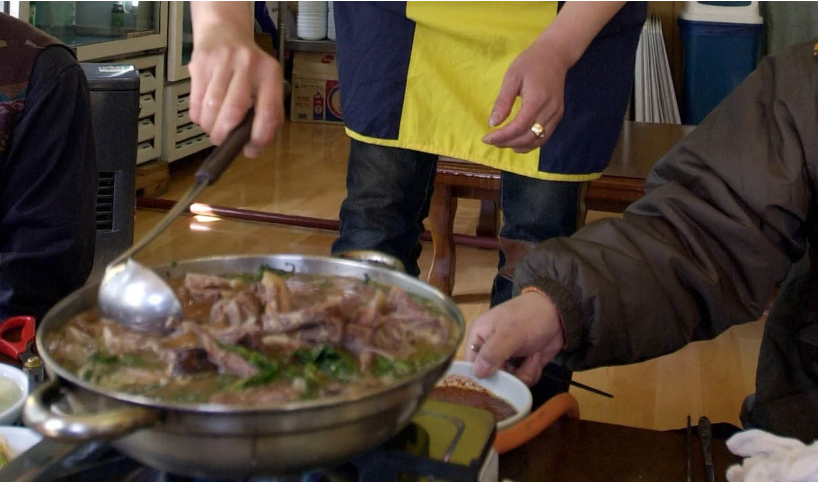South Korea: Mock funeral for dog held on 'dog meat day'
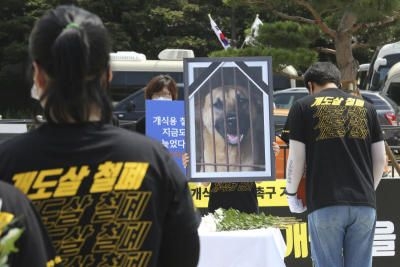 |
| A South Korean animal rights activist pays a silent tribute in front of a dog picture during a rally opposing South Korea's culture of eating dog meat near the presidential Blue House in Seoul, South Korea, Thursday, July 16, 2020. Photo: AP |
Animal activists wore dog masks and held a mock canine funeral during their protests against dog meat consumption in South Korea on Thursday (July 16), the first of three "dog meat days” in the country.
Under a traditional calendar, Thursday is thought to be the first of the three hottest days in South Korea. Many South Koreans believe that eating dog meat or chicken soup on those days gives them strength to beat the heat.
| According to Change For Animal Foundation, the dog meat industry is largely seasonal in South Korea, and dog meat is particularly popular during the summer months and over the boknal days - the three hottest days of the lunar calendar - when bosintang is favoured as it is believed to improve stamina and virility during the hot and humid summer months. During these months - late May to August, 70- 80% of dog meat is consumed, even by those who never eat dog meat at any other time of year. Live dogs and dog meat are sold in markets throughout South Korea; and “boshintang” (“invigorating soup”) is served in over >3,500 nationwide. ‘Gaesoju’ (‘dog tonic’) is sold in boshinwon (nutritional or body health shops) throughout the peninsula, and, like bosintang, is widely-believed to hold medicinal properties.
|
At one protest in central Seoul, about 10 activists held banners that read "There are no edible dogs in the world."
The banners had images of fresh fruit that the activists said South Koreans should eat on the three days instead of dog meat.
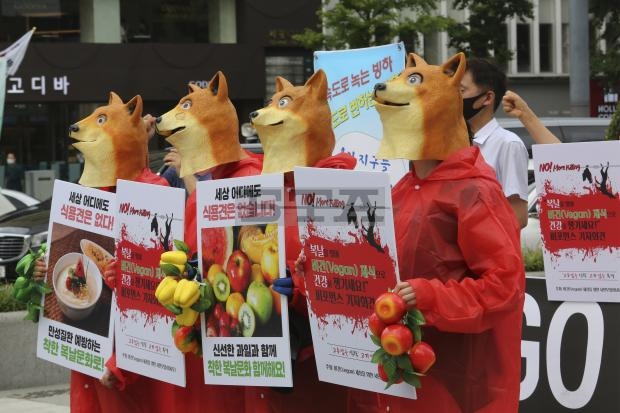 |
| South Korean vegetarian activists wearing dog masks stage a rally opposing South Korea's culture of eating dog meat in Seoul, South Korea, Thursday, July 16, 2020. Activists wore dog masks and held a mock funeral for a canine during their protests against dog meat consumption in South Korea on Thursday, the first of three "dog meat days" in the Asian country. The signs read: "There are no edible dogs in the world". Photo: AP/Ahn Young-joon |
Earlier Thursday, about 20 other activists held a similar anti-dog meat rally nearby. They bowed and laid white flowers before a framed photo of a dog in a mock funeral for the animal. The activists raised placards with the image of small dogs confined in a cage and the words "STOP DOG MEAT”.
In a similar activity conducted in 2019, American actress Kim Basinger was seen together with dozens of people opposed to dog meat consumption near the National Assembly in Seoul, calling for the legalization of dog meat.
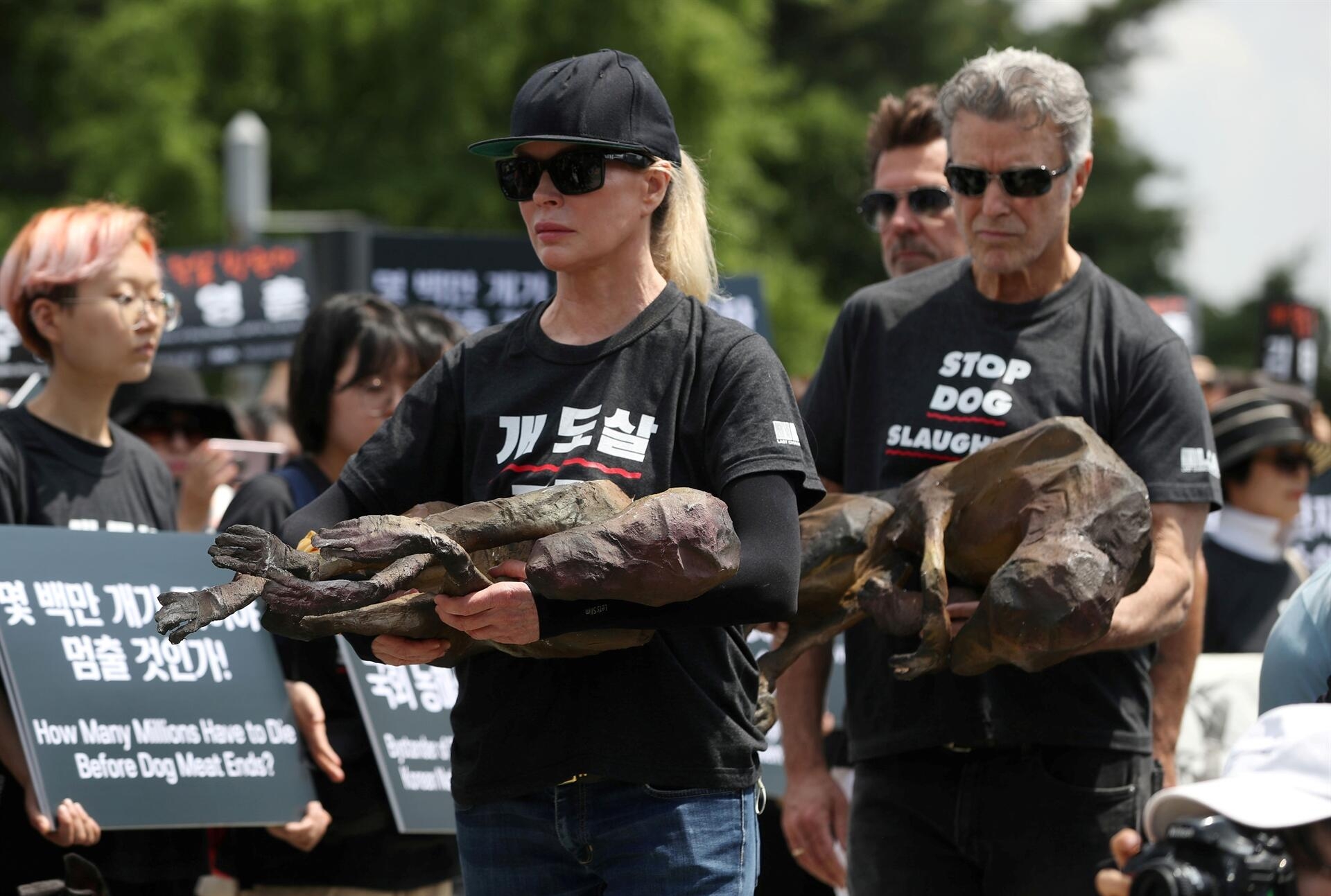 |
| American actress Kim Basinger in a campaign in Seoul in 2019. Photo: Hurriyet Daily News |
Dog meat is neither legal nor explicitly banned in South Korea. Dog meat restaurants are a dwindling business as younger people find dog meat a less attractive dining option. Pets are growing in popularity, and a survey in 2018 indicated that about 80% of South Koreans had not eaten dog meat in the previous year. However, SCMP cited a source from the Korean Animal Rights Advocate estimate that, up to 1 million dogs are slaughtered for consumption each year in South Korea.
In recent times, South Korea has made multiple efforts to cull its long-standing and often-criticised tradition of dog meat consumption, leading to speculation that the industry may be on its last legs.
During the Pyeongchang 2018 Winter Olympics, the government requested restaurants in the region to stop serving dog meat dishes amid an outcry from activists and visitors, as Western media shone a spotlight on the practice.
In November last year, the government bowed to pressure from animal rights activists and shut down the Taepyeong-dong complex, a dog slaughterhouse located in Seongnam city, south of Seoul. Electrocution equipment, de-hairing machines, wire pens and knives were found in the facility, which critics condemned for its inhumane conditions.
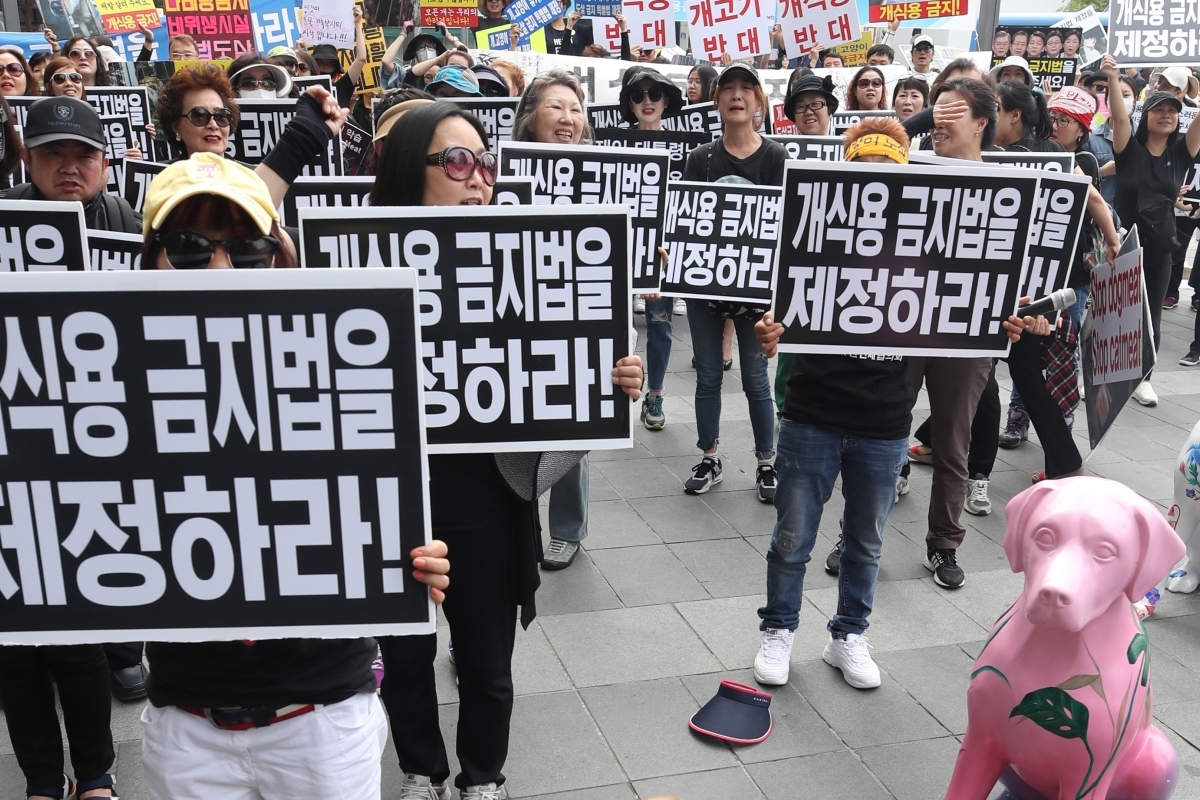 |
| Protesters in Seoul call for banning dog meat consumption in South Korea. Photo: EPA |
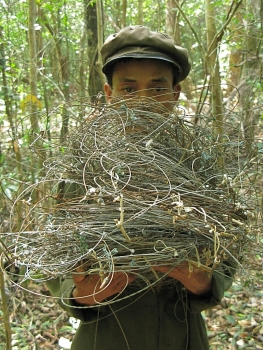 | Snaring wildlife animals may spawn disease transmission, warns WWF The World Wildlife Fund (WWF) has warned that snaring of animals has become a crisis that poses a serious risk to wildlife in South-East Asia ... |
 | Thailand denies monkeys abused to harvest coconut products Thai Commerce Minister rejected the allegations made by People for the Ethical Treatment of Animals (PETA) and declared that coconut harvesting by monkeys is not ... |
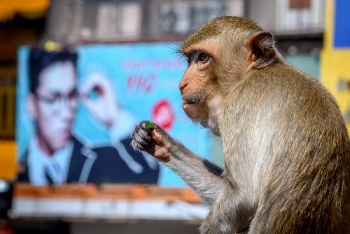 | Western retailers boycott Thai coconuts over inhumane monkey labour A number of supermarkets have removed some coconut water and oil from their shelves after it emerged the products were made with fruit picked by ... |
Recommended
 Handbook
Handbook
Vietnam Moves Up 8 Places In World Happiness Index
 Handbook
Handbook
Travelling Vietnam Through French Artist's Children Book
 Multimedia
Multimedia
Vietnamese Turmeric Fish among Best Asian Dishes: TasteAtlas
 Handbook
Handbook
From Lost to Found: German Tourist Thanks Vietnamese Police for Returning His Bag
 Handbook
Handbook
Prediction and Resolution for the Disasters of Humanity
 Handbook
Handbook
16 French Films To Be Shown For Free During Tet Holiday In Vietnam
 Handbook
Handbook
Unique Cultural and Religious Activities to Welcome Year of the Snake
 Handbook
Handbook

